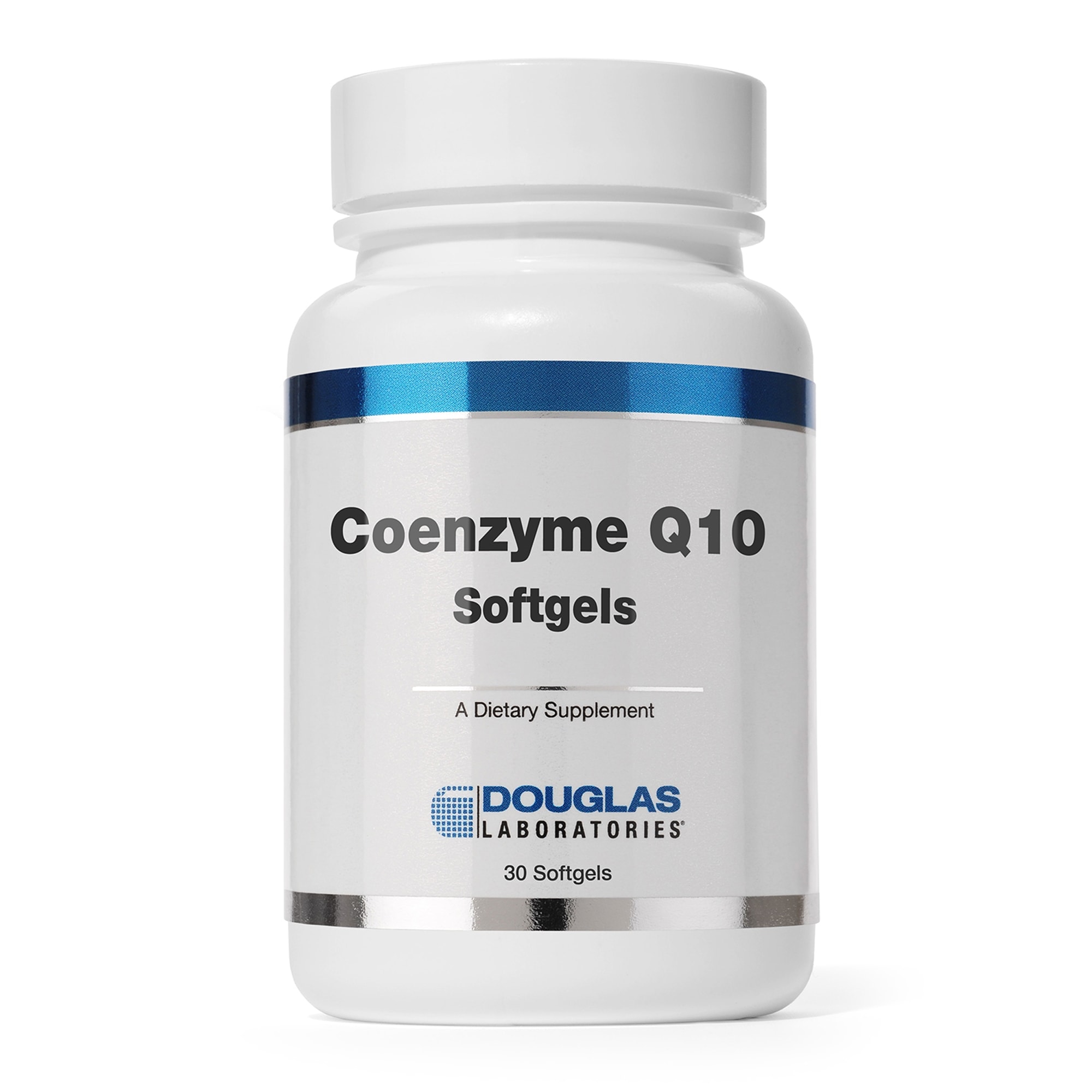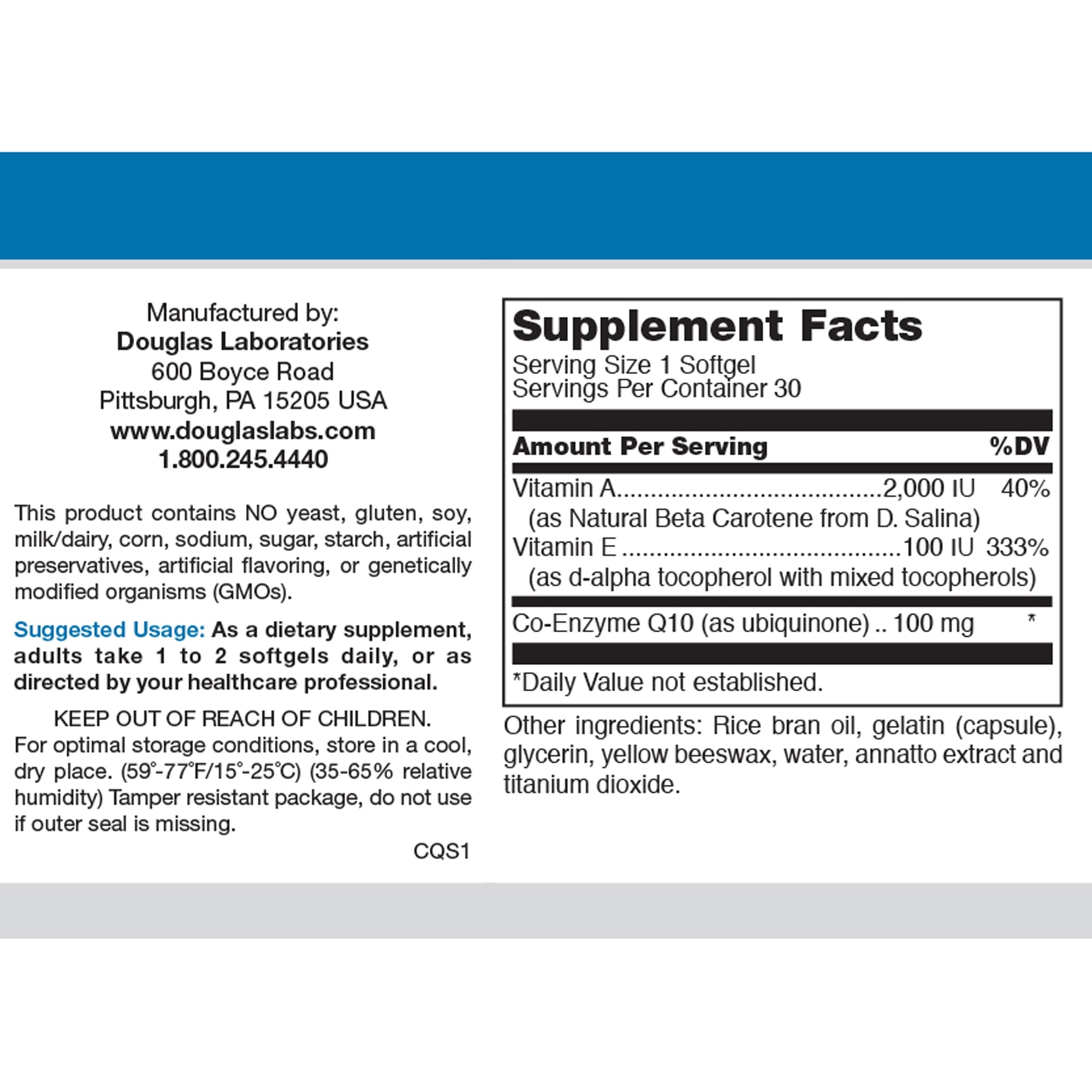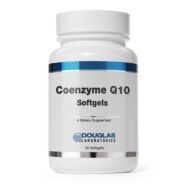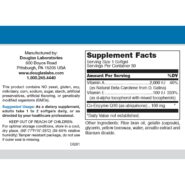As a dietary supplement, adults take 1 to 2 softgels daily, or as directed by your healthcare professional.
Serving Size: 1 Softgel
Amount Per Serving
Vitamin A …2, 000 IU
(as Natural Beta Carotene from D. Salina)
Vitamin E …100 IU
(a d-alpha tocopherol with mixed tocopherols)
Co-Enzyme Q10 …100mg*
(as ubiquinone)
Other ingredients: Rice bran oil, gelatin (capsule), glycerin, yellow beeswax, water, annatto extract and titanium dioxide.









Reviews
There are no reviews yet.